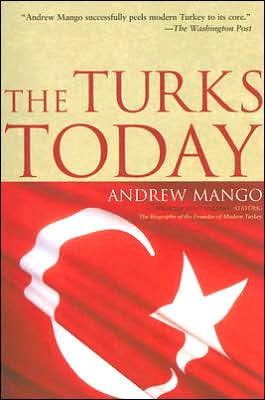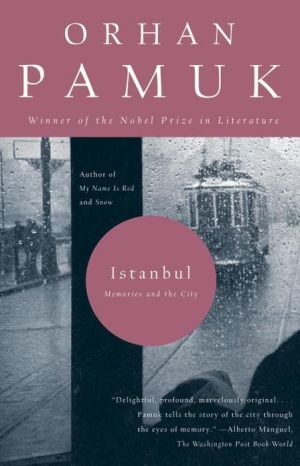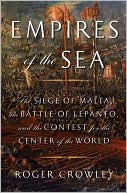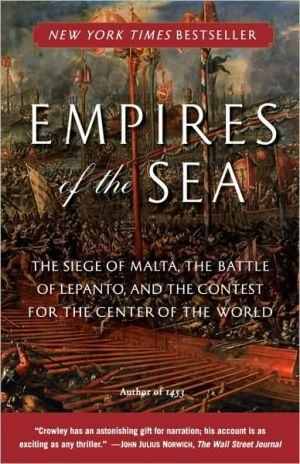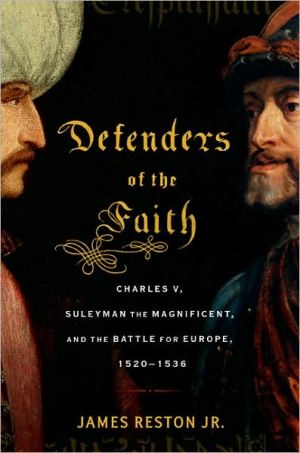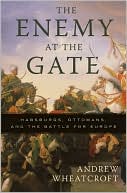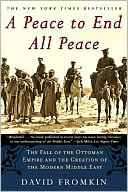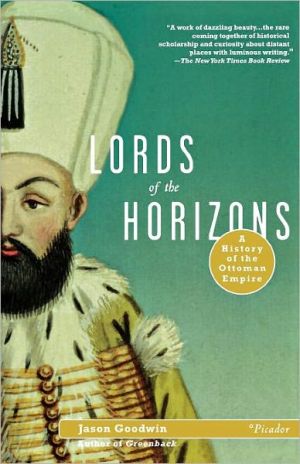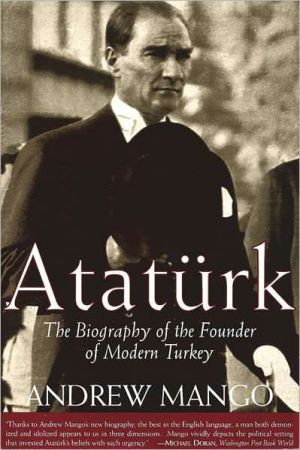Turks Today
Eighty years have passed since Mustafa Kemal Ataturk founded the Turkish Republic out of the ruins of the Ottoman Empire and set it on the path of modernization. He was determined that his country should be accepted as a member of the family of civilized nations. Today, Turkey is a rapidly developing country, an emergent market, and a medium-sized regional power with the second strongest army in NATO. It is an open country that attracts millions of tourists, thousands of foreign businessmen,...
Search in google:
Eighty years have passed since Mustafa Kemal Ataturk founded the Turkish Republic out of the ruins of the Ottoman Empire and set it on the path of modernization. He was determined that his country should be accepted as a member of the family of civilized nations. Today, Turkey is a rapidly developing country, an emergent market, and a medium-sized regional power with the second strongest army in NATO. It is an open country that attracts millions of tourists, thousands of foreign businessmen, and hundreds of researchers. They enjoy Turkish hospitality, experience its rich landscape and history, but find it hard to form an overall picture of the country. In this sequel to his acclaimed biography, Ataturk, Andrew Mango provides such a portrait, tracing the republic's development since the death of its founder and bringing to life the Turkish people and their vibrant society. The Turks Today interprets the latest academic research for a broader audience, making this highly readable book the definitive work on modern Turkey. Publishers Weekly Istanbul-born, British-based Mango (Ataturk) offers an insightful, sympathetic portrait of recent Turkish history. The first third of the book discusses the growth of the Turkish state after Atat rk's death in 1938, with a fitful spread of democracy, clashes with Greece and the departure of Istanbul's Greek community. Economic and social conflict from 1960 to 1980 was subsequently "contained" by a military-driven constitution and rapprochement with Europe. A battle over the logo of the mayoralty of Ankara, the capital, illustrates the recent negotiations between Islamists and secularists. Istanbul, whose "infrastructure does not match its size," is growing as a regional base. In impoverished, traditionalist eastern Turkey, "the Third World has not been banished," though Mango argues that integration with the state-if not assimilation-is the best hope for the Kurdish minority. Turkey today, Mango suggests, resembles the late modernizing countries of southern Europe in many ways. He sees potential for a fully democratic and secular state, but warns that it takes time to "implant Western institutions in non-Western soil." Though this volume lacks some of the bite and immediacy of a journalist's book like Stephen Kinzer's Crescent and Star, it emerges as a more thorough introduction to a less-known but increasingly vital country. (Jan.) Copyright 2004 Reed Business Information.
Pt. ITurkey since the death of AtaturkIntroduction : origins151State before nation 1938-1945252The high cost of free elections 1945-1960393Years of strife 1960-1980574Conflict contained 1980-200381Pt. IITurkey and the Turks today5Catching up1076Economic surprises1417Education and culture1578Ankara governs1779Istanbul lives18910Eastern approaches20711Red apple or sour grapes23312Progress and pitfalls243
\ Publishers WeeklyIstanbul-born, British-based Mango (Ataturk) offers an insightful, sympathetic portrait of recent Turkish history. The first third of the book discusses the growth of the Turkish state after Atat rk's death in 1938, with a fitful spread of democracy, clashes with Greece and the departure of Istanbul's Greek community. Economic and social conflict from 1960 to 1980 was subsequently "contained" by a military-driven constitution and rapprochement with Europe. A battle over the logo of the mayoralty of Ankara, the capital, illustrates the recent negotiations between Islamists and secularists. Istanbul, whose "infrastructure does not match its size," is growing as a regional base. In impoverished, traditionalist eastern Turkey, "the Third World has not been banished," though Mango argues that integration with the state-if not assimilation-is the best hope for the Kurdish minority. Turkey today, Mango suggests, resembles the late modernizing countries of southern Europe in many ways. He sees potential for a fully democratic and secular state, but warns that it takes time to "implant Western institutions in non-Western soil." Though this volume lacks some of the bite and immediacy of a journalist's book like Stephen Kinzer's Crescent and Star, it emerges as a more thorough introduction to a less-known but increasingly vital country. (Jan.) Copyright 2004 Reed Business Information.\ \ \ \ \ Foreign AffairsMango, the author of the best biography of Atatürk and other works on Turkey, is at the top of his form here. The first four chapters provide a general political history of Turkey since Atatürk, weaving the account around the roles of the successive leaders, from Atatürk to Recep Tayyip Erdogan. Mango then turns to thematic topics, including the economy, education, the Kurds, and Turkish efforts to join the European Union. Short chapters on Ankara and Istanbul limn these two major cities and also bring out the different strands that make up Turkish political culture. This book might well be thought of as a national saga, a bildungsroman of that scion of Atatürkism, the Republic of Turkey. It is, on balance, a sanguine account, but Mango fairly states the tribulations of this national "growing up." And who can resist a book with a chapter on Turkey's would-be Western orientation that is titled "Red Apple or Sour Grapes?"\ \ \ Library JournalThis new work summarizes the state of Turkey nearly 70 years after the death of Ataterk, the republic's founding leader. Mango (Ataterk), who has been writing about Turkey for decades, covers history and politics in the first third of the text and devotes the rest of the book to society and culture. The information is densely packed into these pages and the nonspecialist reader might need more explanation and background since many of the individuals and events have not been prominently covered in US media. For further study, recent works on the subject include Amikam Nachmani Turkey: Facing a New Millennium and Turkish Transformation: New Century, New Challenges, edited by Brian Beeley. A NATO member, Turkey has long been an important U.S. ally, and its pending application to join the European Union will only augment its significance. Libraries that want to add such a country overview should consider this one.-Marcia L. Sprules, Council on Foreign Relations Lib., New York Copyright 2004 Reed Business Information.\ \ \ \ \ Kirkus ReviewsA dense look at the modern history of Turkey, focusing on human conflict and bureaucratic details. In a sequel to Ataturk (2000), Mango takes up the story of modern Turkey from Ataturk's demise, necessitating that he address both Turkey's years of violent tumult and its emergence as a competitive, technologically advanced nation. In his first section, Mango traces several distinct narratives of conflict and compromise from 1938 to the present. The wartime President, Ismet Inonu, skillfully played his country's interests against both Allies and Axis, continuing a political pattern of Turkey being shepherded by a wily strongman. In the 1950s, ten years of Democrat party rule produced substantial technological and agricultural gains and advanced the government's ambitious desire for NATO membership, yet also established underlying causes of domestic unrest. In the 1960s and 1970s, Turkey's growing pains were all too evident: its controversial military occupation of Cyprus was merely the public face of a complicated and bitter civil fight that resulted in numerous assassinations and street killings. Ironically, it took a 1980 military coup that restored law and order "by draconian means" to begin a return to the forward-looking secularism first espoused by Ataturk. In his second section, Mango systematically examines the country's present achievements in economics and education and the transformations that are still underway in the revered cities of Ankara and Istanbul (the putative centers of government and cultural achievement, respectively). Throughout, Mango seems fascinated by the minutiae, a quality that lends his book the feel of a nation's lived experience. Still, it's easy for areader to get lost among the shifting sands of conspiracy and commerce. Although Mango begins his survey by noting that "The unevenness of modernization and of material progress makes it hard to sum up the state of Turkey today," it's clear by the time he concludes that the Turks remain a forward-looking and pragmatic people. A useful historical survey, though arguably more for serious inquirers than tourists.\ \
